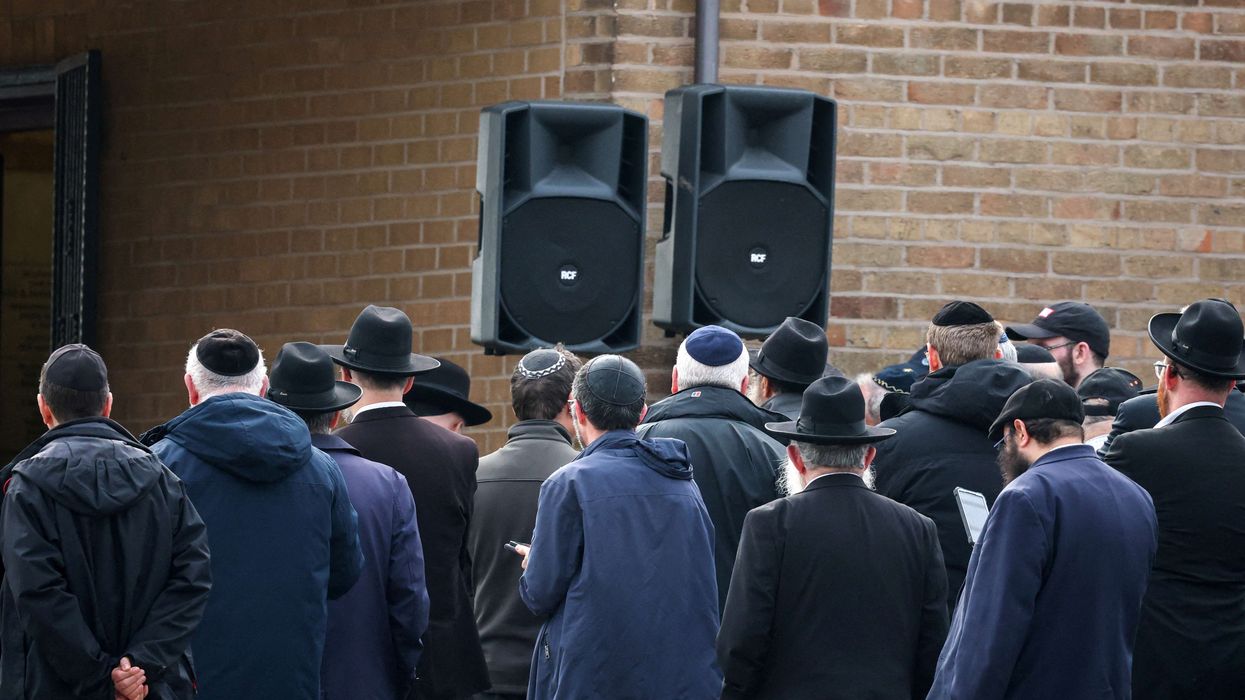MURDER at the synagogue made last Thursday (2) a dark day in British history. Yom Kippur, the holy day of atonement, sees soul-searching Jews cut themselves off from electronic communication for many hours. Some, guarding other synagogues, heard of the Manchester attack from police officers rushing to check on their safety. Others from whispers reverberating around the congregation. Some only found out in the evening, turning on mobile phones or car radios after the ceremonies were over.
“There was an air of inevitability about it,” Rabbi David Mason told me. He was among many Jewish voices to describe this trauma as shocking, yet not surprising. No Jewish person has been killed for being Jewish in this country for over half a century. That victims Melvin Cravitz and Adrian Dauby died seeking to protect others exemplifies the enormous everyday efforts on community security in recent decades. There had been a grim, rising expectation, over the last two years of simmering antisemitism, that such a day might come. David Mason told me he fears a ‘double tragedy’ if the response was to disrupt efforts to build cohesion across communities, rather than galvanising them.
Manchester is the centre of British Jewish life beyond London. The magnificent restoration of the 1798 synagogue which today houses the Manchester Jewish Museum testifies to deep Jewish roots in the city. But as the heavens opened over north Manchester during last Friday’s (3) vigil, there was a fractious cocktail of grief, solidarity and raw anger. Deputy prime minister David Lammy was heckled over Palestine and protest marches. Yet my colleague Avaes Mohammad, attending from nearby Blackburn, told me too how local Muslims were warmly thanked in person by local Jewish residents for being there.
The divisive provocation of an Israeli government invitation to Tommy Robinson was the last thing that Jewish civic leaders needed during such a moment of pain. So, I was impressed with the robust clarity of the Jewish Leadership Council and Board of Deputies in reiterating why Robinson is a dangerous thug who will never be trusted by most British Jews. Israel’s minister for antisemitism and diaspora relations declared that the Board of Deputies had been captured by pro-Palestinian forces of wokeness; a reply that shows why he is ‘minister for the diaspora in name only’ to anyone who knows Britain at all.
For progressive voices, calling out the far right is the easy part. The response from Jewish civic leaders reinforced the crucial boundary between challenging Islamist extremism and Robinson’s attempt to recruit Jews into sweeping anti-Muslim prejudice. It could be reciprocated best by challenging Islamist hatred as strongly as the racist far right.
British Muslim civic leaders understand that challenge. The arson attack on an East Sussex mosque is just one example of how Muslims often suffer most when Islamists convey, through words or deeds, a narrative of extremism and incompatibility. The result is so often more fear, more prejudice and more threat to the status of Muslims as equal citizens of our country.
The lines between politics, protest and prejudice are sharply contested. Many in politics offer wildly inconsistent principles on different issues. A government review, of how police set conditions to ensure the line between democratic protest and intimidation, should be used to demonstrate consistency – whether the issue is Palestine, India and Pakistan, or asylum seekers in hotels.
It is antisemitic to hold British Jews responsible for the Israeli government – in mere words or murderous deeds. Rationally, by the same token, challenges to Israeli government policy and support for a Palestinian state are distinct from antisemitism, unless made in antisemitic terms. But the emotional landscape can be more complicated. A new study from the Institute of Jewish Public Research (JPR) illuminates a lonely two years for British Jews. The pervasive experience of casual antisemitism unifies the Jewish community – but Israeli action in Gaza is a source of pain and division. JPR finds that a majority of British Jews now say that Israel’s military excesses in Gaza offend their Jewish values, yet that they also feel closer emotionally to Israel since the Hamas atrocity. Many British Jews now feel closer to Jewish friends – and try to avoid talking politics or about Israel with others.
Our age has seen a concerted effort to delegitimise expressions of solidarity as mere ‘virtue signalling’, in order to deepen political polarisation, at best, or at worst to socialise violence. Thousands of lives were lost in Northern Ireland in living memory as men of violence claimed to defend one community against another. Before Manchester, there was only one murder at a place of worship in Britain this century: the far-right inspired murder at Finsbury Park Mosque in 2017. Americans seem desensitised to violence in churches and schools. We must never emulate that here.
Responses to Manchester show why expressions of empathy still matter – not only symbolically, but also in practice. Far from being an evasion, empathy can provide the foundation for the deeper work needed to address the roots of hatred. That is a task we must do together.

Sunder Katwala is the director of thinktank British Future and the author of the book How to Be a Patriot: The must-read book on British national identity and immigration.





